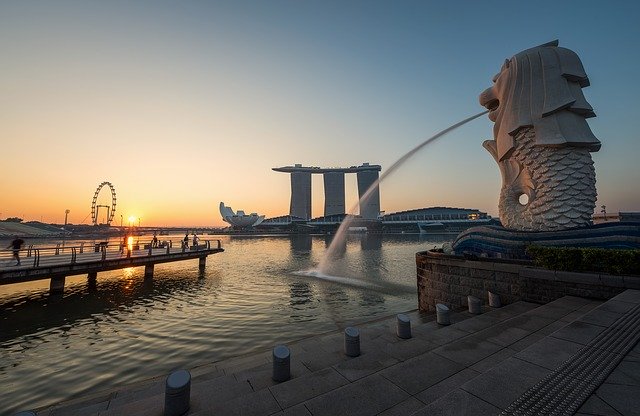KUALA LUMPUR, June 24 — Singapore is drawing up a roadmap to transit to a new normal in which the nation must face the reality that Covid-19 may never go away, and will stay as an endemic disease.
The island republic’s Covid-19 task force ministers Gan Kim Yong, Lawrence Wong and Ong Ye Kung, in an op-ed published in The Straits Times today, revealed that they already have a broad plan that can turn the Covid-19 epidemic into something less threatening — akin to influenza; hand, foot and mouth disease; or chickenpox — and “get on with our lives”.
Singapore’s new normal in living with Covid-19 — according to the trade and industry, finance, and health ministers — may do away with massive contact tracing and quarantine when infections are found, and rely on self-testing and self-isolation instead.
Infected people can also recover at home as symptoms will likely be mild with vaccination, besides having low risk of transmission to other vaccinated people.
Monitoring of Covid-19 will also change from daily infection numbers to looking at cases of severe disease, intensive care unit (ICU) occupancy and ventilator usage, like how influenza is monitored.
The Singaporean ministers also promised that business operations would not be disrupted in the new normal with Covid-19 being endemic, while large gatherings and major events like New Year countdowns could resume.
Travel will also resume in Singapore’s new normal, “at least to countries that have also controlled the virus and turned it into an endemic norm”, with Singapore and destination countries recognising each other’s vaccination certificates.
Travellers, especially the inoculated, simply need to get tested before departure, and do not need to be quarantined upon arrival with a negative test result.
The first strategy in Singapore’s roadmap to the new normal involves vaccinating two-thirds of Singapore’s 5.89 million population with at least a single dose by early July, and two-thirds to be fully vaccinated with two doses by August 9 — its National Day — depending on supply.
“We are working to bring forward the delivery of vaccines and to speed up the process. The evidence is clear: Vaccines are highly effective in reducing the risk of infection as well as transmission. Even if you are infected, vaccines will help prevent severe Covid-19 symptoms,” said the ministers.
As of June 23, Singapore has reported a total of 62,470 cases and 35 deaths. Between June 10 and June 23, a total of 247 new cases were detected, translating to an average of 17.64 cases per day within the past 14 days.
Citing Israel’s experience — which has the highest vaccination rate in the world with nearly 60 per cent of its population fully inoculated against Covid-19 — the three Singaporean ministers noted that Israel has brought the clinical outcomes of Covid-19 close to that of seasonal influenza in the United States.
Across all age groups, the hospitalisation rate due to Covid-19 in Israel among those fully vaccinated is 0.3 per 100,000 persons daily, and the mortality rate is 0.1 per 100,000 persons.
In comparison, in 2018/19, the hospitalisation and mortality rates for influenza in the US were 0.4 and 0.03 per 100,000 persons daily, respectively. In a severe flu season, like in 2017/18, the rates were 0.67 and 0.05 respectively.
“These are very promising outcomes,” the ministers said.
Singapore’s second strategy in its roadmap to normality is testing and surveillance, which would see Covid-19 antigen rapid test kits, including self-tests, being made easily accessible to the public.
“We cannot rely only on the polymerase chain reaction (PCR) test, which can be uncomfortable and takes many hours to produce results,” said Gan, Wong, and Ong.
The Singaporean ministers said there are even faster test kits in the pipeline, such as breathalysers, that take about one to two minutes to produce the results and do not involve swabbing. In time, they said the airport, seaport, office buildings, malls, hospitals and educational institutions can use these kits to screen staff and visitors.
Wastewater testing, which is useful to find out if there are hidden infections in dormitories, hostels or housing estates, will also be rolled out.
“We would still need rigorous testing at our borders to identify any person carrying the virus, especially variants of concern.
“Domestically, testing will be less of a tool for ring-fencing and quarantining people exposed to infected persons. Instead, it would be to ensure that events, social activities and overseas trips can take place safely; as well as to reduce transmission risks, especially to those who are vulnerable to infections,” they said.
Singapore’s third strategy in transitioning to living with Covid-19 involves effective treatments for the disease. The ministers said there are now many therapeutic agents that are effective in treating the critically ill, quickening recovery, and reducing disease progression, severity and mortality.
“The Ministry of Health tracks these developments closely, ensuring that we have adequate supplies of these drugs. Our medical researchers actively participate in the development of new treatments,” they said.
Finally, they stressed that the success of the nation’s plan to live with disease depends on Singaporeans’ acceptance that Covid-19 will be endemic and their collective behaviour.
“If all of us practise good personal hygiene, we are less likely to be infected. If all of us are considerate to one another, staying away from crowds when we feel unwell, we will reduce transmission. If all of us shoulder the burden together — workers keeping their colleagues safe by staying at home when ill, and employers not faulting them — our society will be so much safer.”








